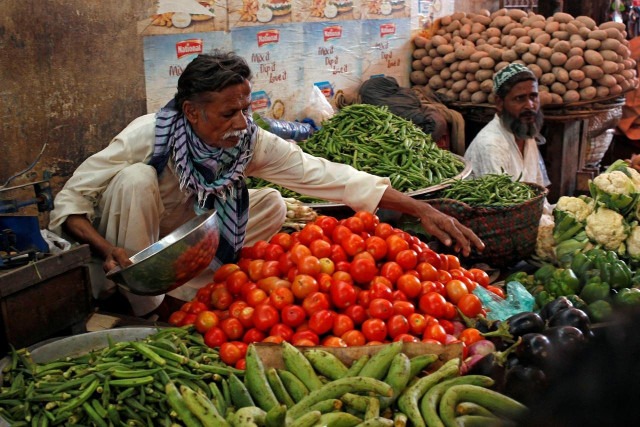Skyrocketing Prices Frustrate Consumers
Lahore residents are voicing frustration as vegetable prices continue to soar well above official government rates. Shoppers say that despite the display of official price lists at shops and stalls, vendors routinely sell essential produce at inflated rates.
According to market sources, the current retail prices are considerably higher than the official rate list. For example, onions are selling for Rs160 per kilogram, instead of the government’s fixed price of Rs135. Tomatoes cost Rs100 per kilogram compared to the official Rs80, while cucumbers are being sold for Rs120 against a listed price of Rs90.
Other vegetables have seen similar jumps: bitter gourd now costs Rs100 instead of Rs70, brinjal (eggplant) Rs60 instead of Rs40, fenugreek Rs60 instead of Rs50, and carrots Rs100 instead of Rs80.
Citizens Call for Stricter Enforcement
Residents argue that the government’s monitoring system is ineffective. They stress that merely displaying rate lists is not enough to control profiteering. Shopkeepers continue to overcharge without fear of penalties, said one resident in the city’s Model Town area. Authorities must ensure enforcement through regular inspections and fines.
Consumer rights activists have echoed these concerns, warning that rising food prices are adding pressure on already strained household budgets. The situation, they say, reflects broader issues of weak market regulation and poor oversight by local administrations.
Shopkeepers Cite Rising Costs
Vendors, on the other hand, defend the price hike. They claim that transportation costs, fuel prices, and wholesale rate increases — many of which have intensified after recent floods deepened Pakistan’s inflation crisis — have made it difficult to maintain government-set prices. We are not making extra profit, said one vegetable seller in Ichhra Market. When fuel and supply prices rise, our margins disappear.
Pakistan’s inflation rate remains high, with food inflation hovering around 12–15% in recent months, according to official data. Experts warn that unless the government addresses supply chain inefficiencies and transport costs, price fluctuations in essential food items will persist.
A Call for Market Reform
Economists suggest that local price control committees need greater authority to act swiftly against violations. Without structural reform, they warn, temporary crackdowns will offer little relief to citizens.
As Lahore’s residents continue to struggle with high living costs, the demand for transparent pricing and fair enforcement has become louder than ever.















